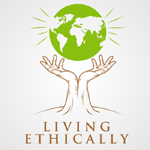Corporate responsibility and social justice are subjects that ultimately ask companies to ensure their operations, especially in developing countries, meet minimum standards in terms of recognising the human rights of workers and their working conditions.
The trend over the past 30 years in the UK is for companies to lessen their responsibility towards the welfare of their workers, reducing their terms and conditions, especially with regards to pension provision, rates of pay, medical insurance entitlements, subsidized meals, loans and mortgages, and sickness pay.
Its no coincidence that many ‘personnel’ departments have been renamed ‘human resources.’
Unlike the old personnel department, the term human resources deliberately reduces the workforce to a status on par with of all the other resources that go to make up a company, for example the IT department, raw materials, production machinery, cash etc. In this way, the old benevolence that existed before the 1980’s has been eroded as companies view their human workforce as no more important than their other resources/assets and feel no obligation to specially treat them differently.
Yet as we all know, boardroom pay has inexorably jumped to levels of disparity not seen since Victorian days, while the directors still retain the benefits named above and more.
The Governments website on corporate social responsibility can be found at www.csr.gov.uk.
For more information you may want to visit some of the following sites:-
Action Aid
Bredbury, Stockport.
Registered charity which believes that ending poverty requires local, national and international action. One country alone cannot change the world but by working together we can end extreme poverty. ActionAid works in rich countries such as the UK to challenge and change their Government’s international development policies, as well as the international institutions they play a leading role in.
Clean Clothes Campaign
International organisation campaigning for improvements in working conditions within the global garment industry.
Corporate Responsibility (CORE) Coalition
CORE works to make changes in UK company law to minimise companies negative impacts on people and the environment and to maximise companies contribution to sustainable societies. Its members include charities, faith-based groups, community organisations, unions, businesses and academic institutions.
The Ethical Trading Initiative
Alliance of companies, non-government organisations and trades unions, that seek to promote ethical working conditions for foreign workers producing goods for the UK market.
The International Labour Organisation
United Nations agency, tasked with promoting social justice through formulating internationally agreed conventions on human and labour rights, that set minimum standards.
No Dirty Gold
Most consumers don’t know where the gold in their products comes from, or how it is mined. This website provides an overview of the major social, environmental, and economic impacts of gold mining.
Progressio
International charity with Catholic roots that enables poor communities to solve their own problems through support from skilled workers.
Organisation offering courses and advice on this subject.
